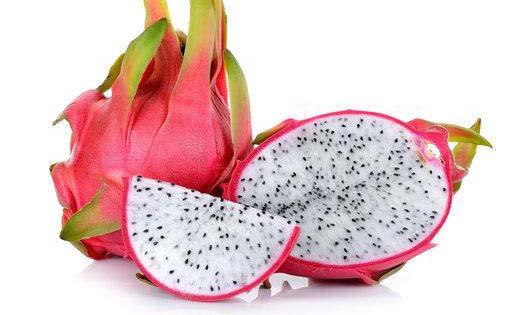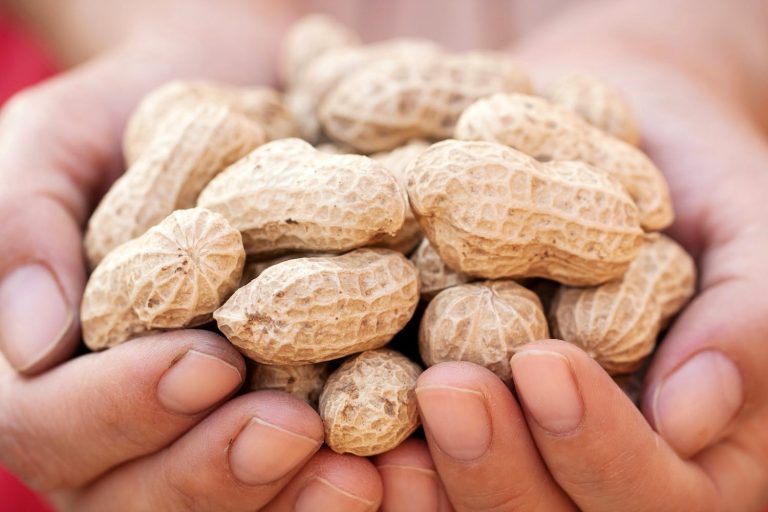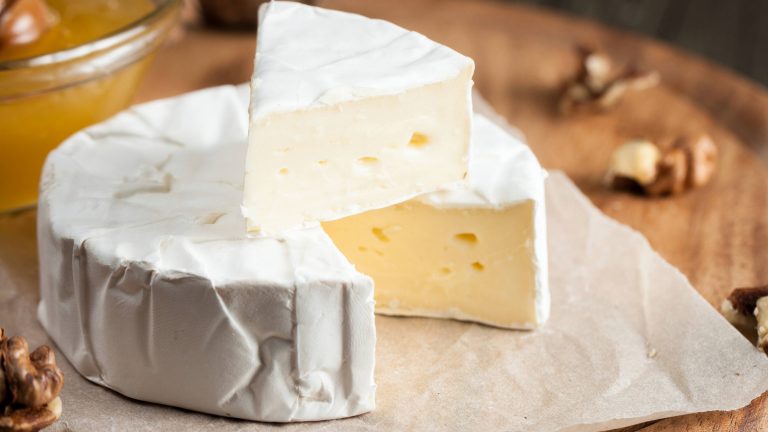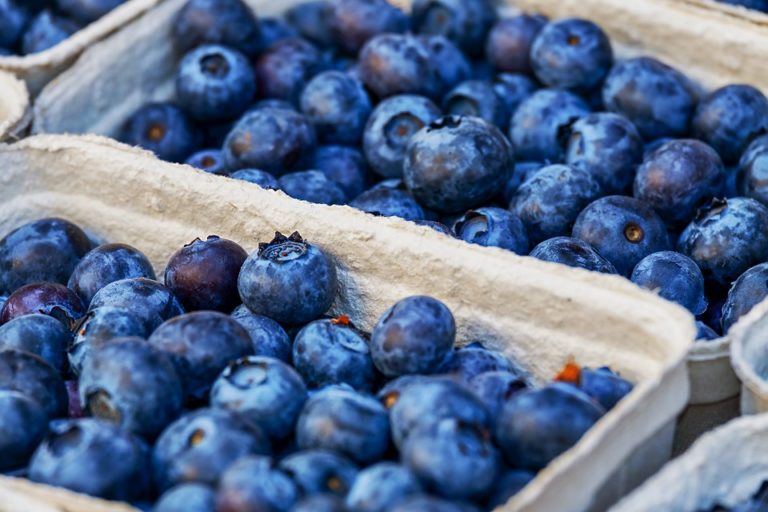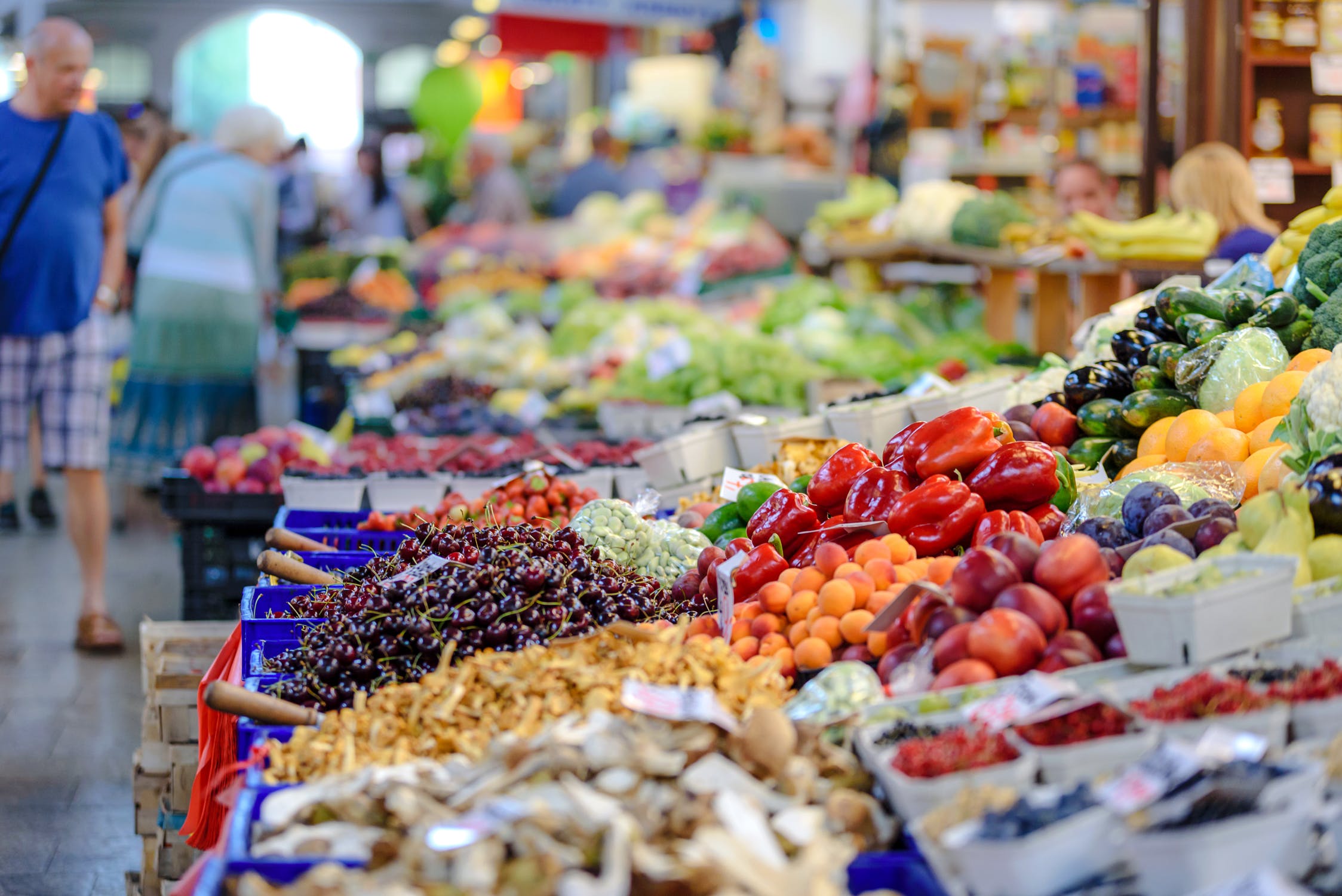
While there are many factors—like environment, family history, and age—that can affect how long you live, there’s no shortage of research to back up the very strong connection between diet and longevity.
“Fruits and vegetables contain compounds that reduce the risk of heart disease and stroke, some cancers, chronic respiratory diseases, diabetes, and obesity, which is one of the reasons health experts are constantly trying to encourage people to eat more of them,” says Frances Largeman-Roth, RDN, author of Eating in Color.
But fruits and veggies aren’t the only foods you should be nourishing your body with to play your best defense against diseases. Here is a list of the most nutritious foods to add to your diet to improve your longevity and protect your health.
Legumes
Beans, peas, lentils, peanuts, and chickpeas are excellent sources of fiber and plant-based protein to stabilize blood sugar and keep cravings at bay. They also help nourish a healthy microbiome.
“A healthy gut microbiome is known to help regulate inflammation, lower blood lipids (cholesterol) and regulate immune function,” explains Suzanne Dixon, RD, a dietitian with The Mesothelioma Center at Asbestos.com. She recommends including at least five serving of legumes in your diet weekly.
Eggs
While eggs have high cholesterol content, research shows that it doesn’t affect your overall blood cholesterol the same way that saturated fats do. In fact, one meta-analysis published in the Journal of the American College of Nutrition, found that individuals with a high egg intake (about seven a week), had a 12 percent reduced risk of stroke compared to those who had a low egg intake (less than two a week).
Leafy greens
Leafy green vegetables, like spinach, kale, and Swiss chard, are chock-full of folate, which is vital for cell growth and red blood cell formation. They also back carotenes (pigments that act as antioxidants) that help maintain healthy vision, bones, teeth, and skin.
“Folate from natural food sources helps protect brain function as we age,” Dixon says. On the other hand, “carotenes bring a boost of antioxidants, which protect against DNA decay or the breakdown of cells,” she adds. “This damage can accumulate over time, contributing to cancer and heart disease.”
Just be sure to stick with whole foods to get your fill of folate, instead of supplements. Taking folic acid supplements can increase your risk of certain cancers, notably colon cancer, Dixon says.
Cruciferous vegetables
Cruciferous vegetables, such as broccoli, cauliflower, Brussels sprouts, and radishes, support the body’s natural detoxification processes. “We have ‘detox’ enzymes, or chemical systems, within our cells (particularly in the liver), and the activity of these enzymes is bolstered by the presence of specific substances found only in cruciferous vegetables,” Dixon says.
Cruciferous veggies are especially beneficial for women, as they help to keep estrogen levels healthy and thwart off hormone-related cancers such as breast, ovarian, endometrial (uterine). Dixon suggests sneaking in at least five servings of cruciferous veggies into your meals each week.
Extra-virgin olive oil
Extra virgin olive oil (EVOO) has been a culinary staple for more reasons than it’s plain delicious. It’s proven to help reduce inflammation, lower blood pressure, and improve insulin sensitivity, Dixon says.
“Extra virgin olive oil has an excellent record of research demonstrating benefits to the cardiovascular system, which is particularly important to note these days, given the fact that heart disease is the number one killer in the U.S.,” says Dixon.
Make a homemade salad dressing with EVOO, drizzle some over veggies before roasting them to get them nice and crisp, and sub it in for butter in recipes to reduce saturated fat.
Fatty fish
Make fatty fish, such as wild salmon, herring, mackerel and sardines, a part of your weekly diet. “Hundreds of studies support the use of small fatty fish for brain health, as they contain omega-3 fatty acids and DHA (docosahexaenoic acid), which feeds the brain and prevents loss of memory and depression,” says Susan Schenck, LAc, MOTM, author of The Live Food Factor.
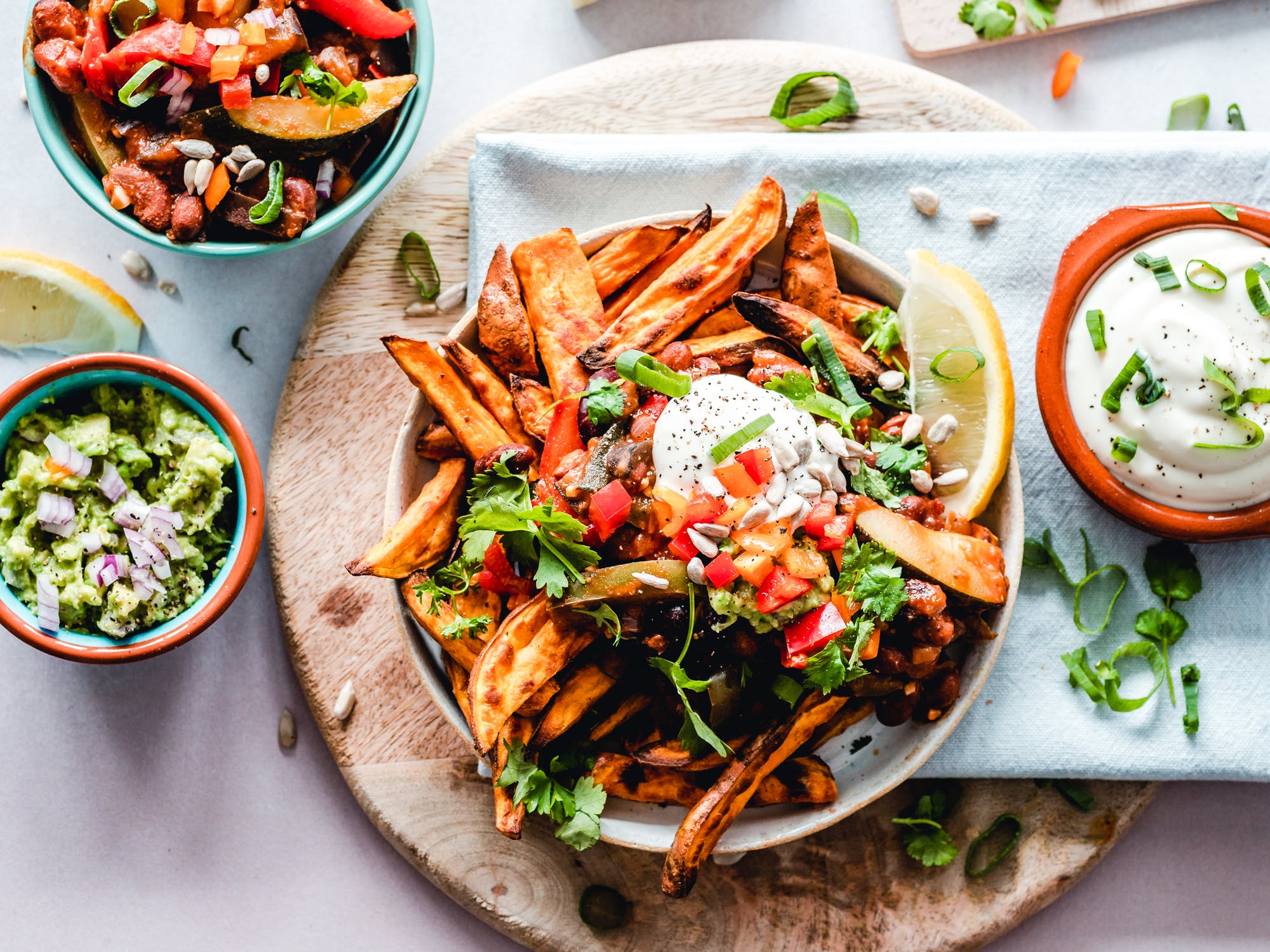
Sweet potatoes
Okinawans are known for living long, healthy lives and have one of the largest populations of centenarians (people who live to 100) in the world. One secret to their longevity? Sweet potatoes, which are loaded with vitamin A, potassium, and fiber.
“Okinawans eat less rice and more sweet potatoes than typical Japanese, and this key difference in the diets of these two groups is believed to play a role in why Okinawans outlive even other Japanese people,” says Dixon.
Dixon recommends eating at least three to five servings per week, ideally in place of other starchy foods like rice, bread, and cold cereal.
Fermented foods
A diet rich in fermented foods supplies good bacteria for maintaining a healthy gut. This is especially important as we age, when our microbiome tends to lose diversity and variety of bacteria.
“A more diverse microbiome is associated with anti-obesity effects and appears to protect against infection and autoimmune disease—it’s one of the mechanisms believed to contribute to declining health with age,” says Dixon.
Load up on kefir, sauerkraut, kimchi, kombucha, and other probiotic foods to keep your digestion in check. Ideally, you want to have at least one serving of fermented foods daily.
Alliums
Onions, garlic, chives, leeks and shallots do more than just impart a flavorful boost to your dishes. These flowering plants contain a compound known as organosulfur, which aids the body’s detoxification process. One study published in the American Journal of Clinical Nutrition, suggests that a diet with onions and garlic can help decrease your risk for disease. Add minced garlic and onions to your stir-fries, salads, and soups to reap their disease-fighting benefits.
Coffee
Good news: You don’t have to quit your coffee habit. Enjoying a cup of joe in moderation is actually good for your health. In fact, plenty of research has linked coffee consumption to a decreased risk of cancer, cardiovascular disease, dementia, liver disease and even diabetes. Dixon recommends adding no more than a splash of milk or cream and no more than a teaspoon of sugar to your daily brew.
Tea
Tea of all kinds—green, black, white—has long been hailed for its health benefits, thanks to its antioxidant and anti-inflammatory compounds.
“Black tea consumption has been linked with improved bone density in older women in numerous studies, and green tea has been shown to reduce the risk of breast and other cancers,” says Dixon. The best way to score the health benefits of drinking tea without overdoing it on caffeine is to have no more than two to three cups daily.
Greek yogurt
There’s a good reason Greek yogurt makes a healthy breakfast. It’s packed with protein and is low in carbs and sugar. In fact, one 170-gram container of nonfat Greek yogurt contains a whopping 17 grams of protein—nearly 40 percent of the recommended daily allowance for women and around 30 percent for men. Deborah Malkoff-Cohen, RD, founder and owner of City Kids Nutrition recommends pairing Greek yogurt with granola and fresh berries as a breakfast. You can also swap it for mayo in creamy dips and sour cream in mashed potatoes, soups, or sauces.

Chia seeds
Chia seeds might be tiny, but their benefits pack a big punch. It contains more protein—a whopping 15 grams per one-ounce serving—than any other seed. Plus, it’s rich in heart-healthy omega-3 fatty acids that have also been shown to help support brain health, reduce belly fat, and boost skin health. Since they are basically flavorless, they’re super easy to add to any dish, be it smoothies, juices, or yogurts.
Plums and prunes
Dark-hued fruits, such as plums and prunes, are packed with powerful antioxidants that work to fight free-radical damage in the body.
“Free radicals in the environment can cause damage to our cells, altering their appearance or function, and can even lead to cancer,” warns Roger E. Adams, PhD, a personal trainer. “The protective effect of antioxidants can keep cells in the body from degrading as quickly and succumbing to the detrimental effects of aging.” Chop up some plums and prunes and toss them into a salad or a smoothie for a hint of natural sweetness.
Avocado
This creamy, green fruit is loaded with vitamins and minerals, including vitamins C, K, B, E and A, as well as fiber and healthy fats. It also contains a high amount of potassium—even more than a banana. “Potassium helps to lower blood pressure by balancing out the negative effects of salt in the diet; the more potassium you eat, the more sodium you lose through urine,” says Malkoff-Cohen.
Berries
Raspberries, strawberries, blackberries, and blueberries contain antioxidants called polyphenols, which have been found to decrease inflammation throughout the body. Dixon recommends aiming to have three to five servings of berries each week. “Frozen is as good as fresh and more budget-friendly for many people,” she says.
Hemp seeds
Classified as a nut, hemp seeds are rich in nutrients, especially healthy fats that our body is unable to metabolize internally.
“Hemp hearts supply us with in two essential fatty acids: linoleic acid (omega-6) and alpha-linolenic acid (omega-3),” says Malkoff-Cohen. “Twenty-five percent of their calories come from protein (for comparison, chia and flax seeds are only 16 to 18 percent protein). You can top them over oatmeal, yogurt parfaits, and even salads.
Coconut oil
When consumed in moderation (about one to two tablespoons a day), coconut oil can be good for your heart. The saturated fats in coconut oil are different from the ones in animal sources and have been shown to have some health benefits. Coconut oil is also an excellent source of vitamin E, so it makes an excellent natural moisturizer.




